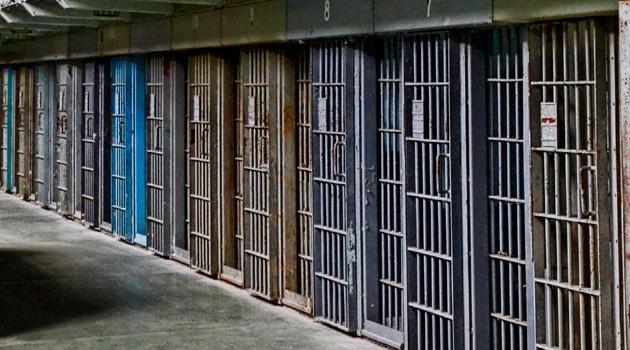Bulgaria: Most inmates in shocking juvenile prison conditions are Romani

Agence France-Presse (AFP) reports that juvenile prisoners in Bulgaria are serving out their sentences in old military dormitories where conditions have horrified international observers, including broken windowpanes replaced with cardboard, filth and repeated beatings. "They have beaten me since I first arrived here. The showers are their boxing ring," says Angel, a 17-year-old prisoner.
He explains that guards take advantage of the fact that there are no cameras installed in the sanitary facilities to violently assault inmates. He has been shut up together with 62 other minors aged 14 to 18 in a juvenile penitentiary in the Bulgarian countryside that is housed in an antiquated, dirty barracks where evidently nothing has changed since communist times.
"If you say anything about the miserable conditions at the prison while talking on the telephone, the officer cuts off the conversation and calls you on the carpet," Angel claims. He is only daring to speak now because his eight-month sentence for assault and theft is ending soon.
Boychinovtsi Prison has been long ignored. On 29 January of this year, the European Committee against Torture (CPT) released a devastating report about it and called on Sofia to respond within three months.
The Bulgarian Justice Ministry has begun an investigation and agreed to open the gates of the prison to journalists. In its report, the CPT says it is shocked by the situation in the prison, as the vast majority of the minors met by CPT staff complained that the guards regularly beat them.
Last December the Bulgarian Helsinki Committee warned authorities of the systematic use of physical violence against adolescent prisoners there for "speaking too loudly, smoking in the television room or doing a poor job of cleaning up." Facility director Mimi Tsochevova claims she has "never received any specific complaints of ill-treatment."
Angel was the only prisoner to complain of violence to AFP journalists, who were only permitted to ask questions of the inmates in the presence of guards. Sevdalin (20), who has spent five years in Boychinovtsi for a crime which he himself considers severe, says he has never been beaten by anyone and never seen guards use their truncheons.
He also says he is glad that he did not have to be transferred to a prison for adults. However, Zhenya Ivanovova, an expert with the Bulgarian Helsinkit Committee, says the prisoners are being intimidated.
"They warn them: Don’t forget that you’re staying here, and by the time you leave you could be in a wheelchair for the rest of your life," she says. The Council of Europe has also denounced the disciplinary use of solitary confinement in "cold, decrepit cells with bars, wooden beds and filthy, stinking toilets" at the facility.
Prisoners have complained to the Helsinki Committee that they sleep in their vests and have no choice but to sleep in pairs to keep warm. When the AFP visited the prison the heat was on, but there were broken windows where the panes had just been replaced with cardboard.
The poorly-maintained cells provide four beds and two closets. The boys wash their clothing in cold water because hot water runs only twice a week.
Bulgaria is the EU’s most impoverished country and has not managed, eight years after joining the EU, to completely reform its justice system, which is ineffective and riddled with corruption. Boychinovtsi Prison is the saddest symbol of this.
Young convicts there have very little chance of being reintegrated back into society after release: Their possibility for continuing education was cancelled at the prison several years ago and the instruction they do receive there is low-level. The director complains of a lack of money, as well as the fact that most of the boys imprisoned there are illiterate.
"Some of them never attended school," she says. Most of the prisoners are Romani.
The inmates are said to receive almost no visits from family or other loved ones. "I waited for my parents on my 20th birthday, but no one came," Sevdalin says.
"These boys come from nowhere and have nowhere to go back to," says a guard. "When they are done serving their sentences, no one is waiting for them."